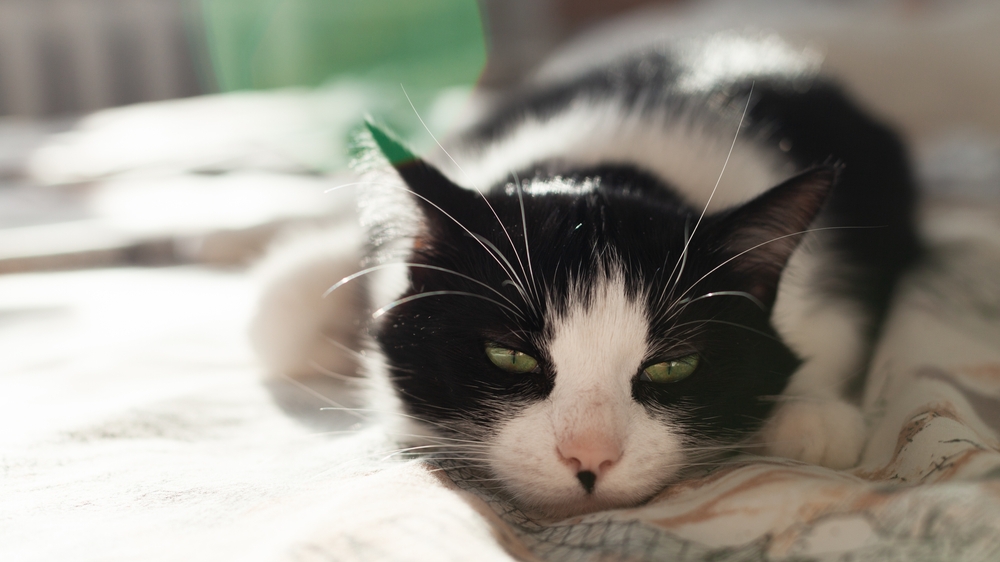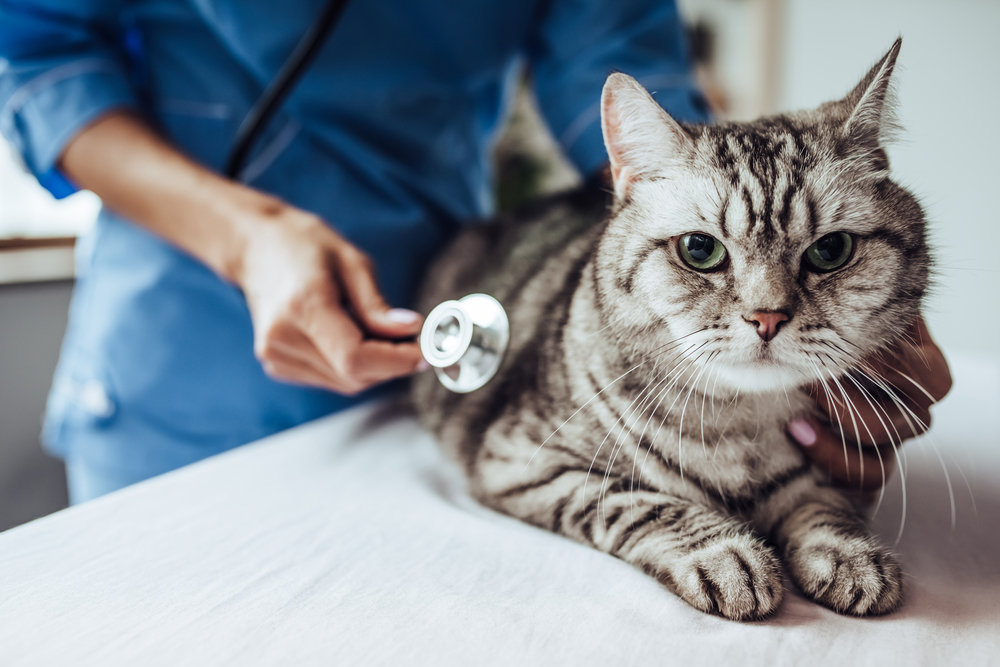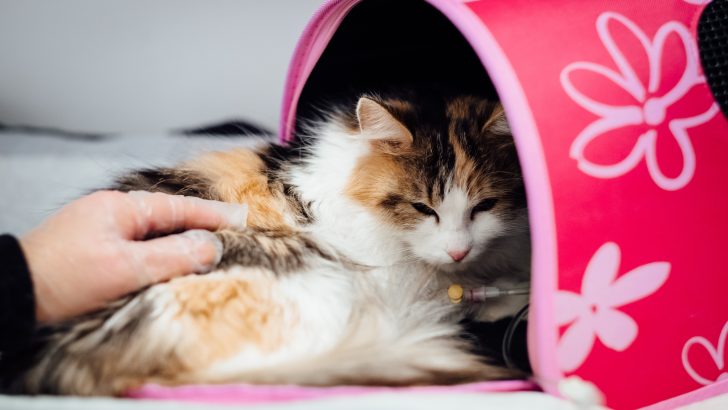Losing a beloved furbaby is every cat parent’s worst nightmare. It’s a heart-wrenching decision, even though it may be the kindest choice for your loving companion. If you find yourself trying to figure out when to euthanize a cat with seizures, I’m truly sorry.
I can only imagine how difficult it is, but I admire your courage in realizing that euthanasia may be the best way to ease your dear fluff’s suffering. It’s an incredibly tough and selfless decision to make, and it’s perfectly normal to feel a mix of sadness and determination to help her.
Although they are usually short, seizures in cats can be incredibly intense. Some lead to severe health complications or, in the worst cases, even death. Seeing your beloved feline in so much pain is truly a distressing experience for every cat parent.
When these seizures become frequent, you can’t help but question whether euthanasia is the only way to provide relief. It’s important to remember that living in constant pain is no way for your beloved fluff to live. Don’t blame yourself for having these thoughts. You’re making a difficult decision out of love for your furbaby.
If you’re seeking guidance on when to euthanize a cat with seizures, I’m here to help you understand this incredibly challenging situation. We’ll discuss some of the most common causes of feline seizures, and help you determine the right time to say goodbye.
What are the most common causes of seizures in cats?

You know, seizures are actually quite common in both cats and dogs. It’s a neurological thing that can happen to our furry friends. Here’s the thing: some seizures can be managed pretty well, allowing your kitty to enjoy a nice life. Sadly, there are other cases where the seizures are just too intense and severe.
It’s important not to beat yourself up over your cat’s condition. You’ve been an amazing cat parent, and your beloved kitty adores you for it. There are so many factors that can contribute to seizures, and I want to walk you through the most common ones.
1. Head injuries
You know how our furballs can be, always full of energy and mischief. They love to run around, explore, play, and sometimes even go on risky adventures. Little do they know, however, that their little mischiefs can sometimes lead to serious health problems.
If your furbaby recently had a mishap, like a bump on the head or something falling on her, it could be the root cause of her seizures. Head injuries can result in concussions, hemorrhages, and even seizures, which may bring along additional health complications down the road.
2. Pathological problems
Apart from head injuries, there are some underlying health conditions that can contribute to your kitty experiencing seizures. One of the most common causes is a brain tumor, which can disrupt her normal brain activity.
However, a tumor isn’t the only disease that could cause your feline to suffer from seizures. Although they might not seem as serious as brain tumors, different infections can also be a reason behind your cat’s condition.
3. Epilepsy

When you first noticed your cat’s having a seizure, epilepsy was probably the first thing that came to your mind. If your kitty has regular and frequent seizures, the first thing you should do is take her to the vet. They’ll run the necessary tests to see if she suffers from epilepsy.
As a chronic condition that causes severe seizures, they’re a lot more intense than those caused by trauma. A proper diagnosis will help you understand what are the necessary steps you should take to help your furry friend.
4. Ingestion of human medicine
Our fluffy friends are super curious. Although we love that about them because it makes them fun to have around, it can be pretty dangerous. One thing they like to explore is our medicine cabinets. If they decide to try some of our medicine, it can seriously harm them.
In fact, ingestion of human medicine is one of the most common reasons behind cat seizures. Pretty much all of us have Advil or Tylenol in our homes, but they can be fatal for our fur babies if ingested in high doses.
The life expectancy of a cat with seizures

The life expectancy of a cat with seizures depends on what’s causing them. For example, if your kitty experiences seizures because of physical trauma, her life expectancy will depend on the severity of her injury.
If you’re lucky and your feline’s injuries aren’t life-threatening, then her seizures won’t be too serious and they’ll probably last for a short period of time. Serious injuries, however, can lead to severe seizures that could cause paralysis or even death.
If your kitty is experiencing seizures, it’s important to consider the underlying cause, such as a brain tumor. The life expectancy of your furry friend will vary depending on the stage of the tumor. With proper care, cats with primary brain tumors can survive for up to 6 months.
If the tumor is removable, there’s a chance your kitty could live for about 55 months. However, if the tumor is secondary, the prognosis is unfortunately much shorter, with a survival time of no more than a month.
On the other hand, if your cat’s seizures are caused by epilepsy, there’s hope for a long and fulfilling life. Epileptic seizures in cats are often mild and rarely have fatal outcomes. The key is to obtain a proper diagnosis and provide symptomatic treatment to effectively manage your cat’s condition.
Lastly, if your feline friend is experiencing seizures due to ingesting medication meant for humans, the severity of her condition will depend on the dosage consumed. If the dose was small, the seizures are unlikely to be life-threatening.
How to manage your cat’s seizures

Sometimes, your feline’s seizures can be managed. If you’re looking for ways to handle your cat’s condition, there are a few things you can try.
Start by keeping a diary of when your kitty experiences seizures. Note down what she was doing before they happened, how long they lasted, and how long it took her to return to her normal self. This record will help you identify the possible triggers.
During a seizure, it’s important to stay calm and create a peaceful environment. Try not to panic, as it can stress out your furry friend even more. Make sure she’s in a safe place where she can’t fall, sit beside her, and wait until the seizure passes. Once it’s over, keep her warm and comfortable.
Be extra careful about giving your cat her anti-seizure medication, and make sure it’s on time. Don’t miss any doses. In this case, consistency is crucial in managing her condition.
When handling your kitty, remember to be super gentle with her. She needs her favorite human, so make sure you’re there for her during this challenging time. However, it’s important to give her the space she needs to recover and not push her into doing anything she’s not comfortable with.
When to euthanize a cat with seizures?

Deciding to euthanize your beloved feline friend is an incredibly difficult and emotional choice for any cat parent. Our cats mean the world to us, and it’s heartbreaking to consider letting them go. Sometimes, we have to prioritize their well-being and relieve their suffering, no matter how much it pains us.
Determining the right time to euthanize a cat with seizures depends on the underlying cause of the condition. In most cases, if the seizures are due to epilepsy or trauma, euthanasia may not be necessary. However, if your kitty has been diagnosed with a brain tumor, it could be the most compassionate solution.
Of course, the decision ultimately depends on the grade of the tumor and how your cat has been responding to the treatment. Remember, you don’t have to face this difficult decision alone. It’s essential to consult your cat’s vet and seek a professional opinion. They can guide you in making the best choice for your beloved fluff.
Some signs can indicate euthanasia as the most appropriate option for a cat with a tumor. They include her refusing to eat, the quality of her life deteriorating with no chance of improvement, her not reacting well to her treatment, and if there’s no way for you to reduce her pain.
The most humane way to euthanize a cat with seizures

If you’ve had a conversation with your cat’s vet and you’ve reached the difficult decision to euthanize your beloved feline to alleviate her suffering, it’s natural to start thinking about the most compassionate approach.
Rest assured, your cat won’t experience any discomfort, but it’s important to make this process easier for your family, too. The kindest way to say goodbye to a kitty with seizures is by using sedation and an injection of barbiturates. This will ensure your furry friend is completely calm and at ease, free from any pain or discomfort.
To make the experience as stress-free as possible for your loving companion, it’s best for her to be surrounded by her loved ones. Take the time to say your goodbyes while she peacefully drifts off to sleep, creating lasting memories of your final moments together.
Don’t worry, your cat will look like she’s fallen asleep, and she’ll feel the same way, too. She’ll pass away peacefully, surrounded by the people she holds dear.
Making this heart-wrenching decision to let go is never easy, but remember that it is an act of kindness. You’re choosing to help your dear furbaby, one last time.
